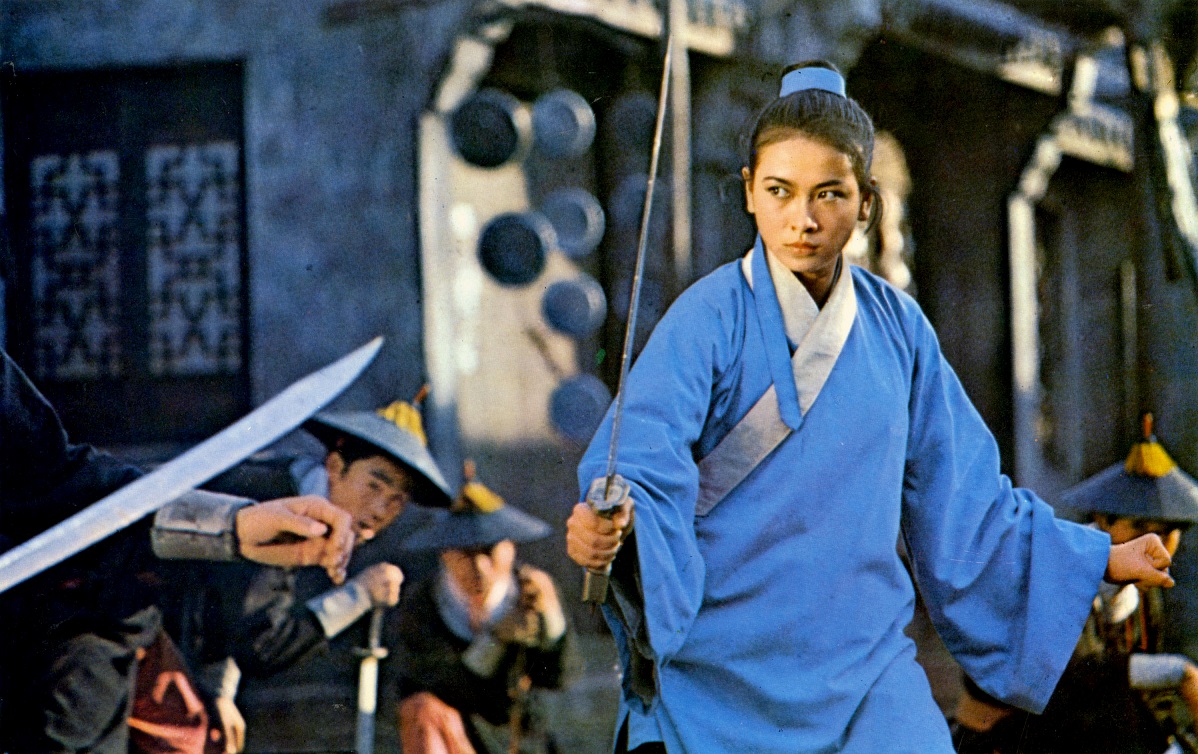The year is 1131, the Song Dynasty is the ruling regime and China is under Manchurian occupation. Patriots have set out their stall in the Taihang Mountains overlooking the eponymous Dragon City. One of their number, fearless warrior Shang Yen-Chih (Hsu Feng), is journeying to the capital to rendezvous with fellow rebel Chen Yang-Xin and receive a strategic map which will help to repel the invading army. However, on her arrival, Yen-Chih learns that Chen and his family have been brutally executed by the new Governor, turning her mission from one of reconnaissance into one of revenge.
It’s a classic set-up for a martial arts massacre, and though there are several extended fight scenes, this is perhaps more of an espionage thriller than a straightforward beat-em-up flick. Not that Yen-Chih doesn’t possess some mean proficiency with her blade; it’s just that almost half of the film’s runtime takes place with her locked in a jail cell, while the fight scenes which do feature take place mostly in darkness. There are some shaky stabs at special effects which don’t hold up well with 50 years of age on them, including a particularly laughable method of communicating superhuman jumps by cutting between shots of actors at the apex of repeated leaps into the air.
Having said that, other tricks of the camera do work well. The reverse jumps from great heights are artfully and silkily shot (in stark contrast to the aforementioned judder reels), while there is a neat cinematic commentary on the felinity of Yen-Chih’s stealth and a particularly noteworthy scene where she encounters the butler of the deceased family. Elsewhere, a nervy jail breakout sequence is executed well, while the installation of Yen-Chih as a swashbuckling female hero is a progressive touch for a film from the 70s, even if it is somewhat negated by later events.
Indeed, the anticlimactic and heavily telegraphed closing scenes are some of the film’s biggest let downs (although don’t read the entire synopsis of the film on the Taiwan Film Festival website if you want to maintain an illusion of suspense). In particular, the emergence of a big baddie with an maniacal laugh that’s so preposterous he even loses track of his adversary while indulging in it feels overegged and under-sketched, especially since his weapons of choice appear to be highly impractical tambourine-type cudgels. After an hour-and-a-half of dubious storytelling, the film really needed a grandstand finish to save it, but unfortunately that fails to materialise.
Filmed half a century ago and set almost nine centuries ago, A City Called Dragon is something of a relic of its time that’s interesting enough for the novelty factor involved in its plot and characterisation. Add to that some interesting cinematographic and sound engineering techniques and there’s plenty to admire and entertain from this little-known Taiwanese action flick, but ultimately it’s too outdated and contains too many eye-rolling moments for it to qualify as anything more than a mildly intriguing oddity.
Part of the Taiwan Film Festival 2020
